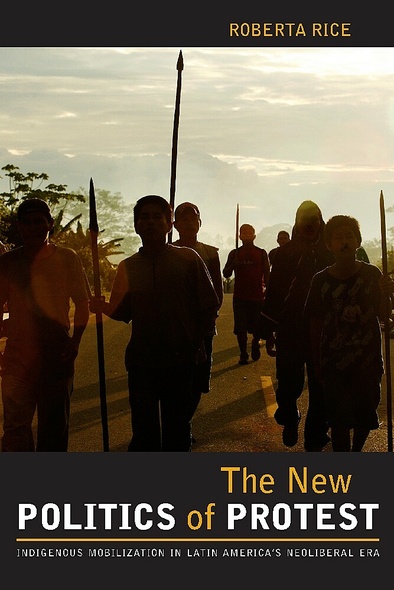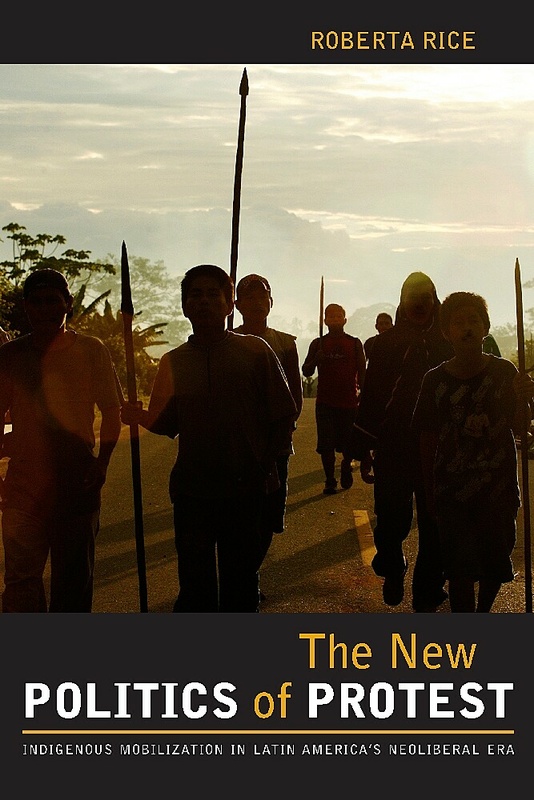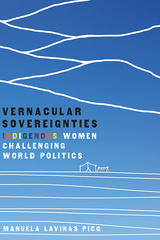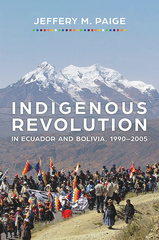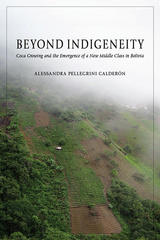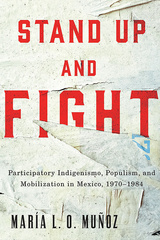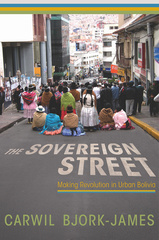Our shopping cart is currently down. To place an order, please contact our distributor, UTP Distribution, directly at utpbooks@utpress.utoronto.ca.
The New Politics of Protest
Indigenous Mobilization in Latin America's Neoliberal Era
In June 1990, Ecuador saw the first major indigenous rebellion within its borders since the colonial era. For weeks, indigenous protesters participated in marches, staged demonstrations, seized government offices, and blockaded roads. Since this insurrection, indigenous movements have become increasingly important in the fight against Latin American Neoliberalism.
Roberta Rice's New Politics of Protest seeks to analyze when, where, and why indigenous protests against free-market reforms have occurred in Latin America. Comparing cases in Ecuador, Peru, Bolivia, and Chile, this book details the emergence of indigenous movements under and against Neoliberal governments. Rice uses original field research and interviews with indigenous leaders to examine long-term patterns of indigenous political activism and overturn accepted theories on the role of the Indian in democracy.
A useful and engaging study, The New Politics of Protest seeks to determine when indigenous movements become viable political parties. It covers the most recent rounds of protest to demonstrate how a weak and unresponsive government is more likely to experience revolts against unpopular reforms. This influential work will be of interest to scholars of Latin American politics and indigenous studies as well as anyone studying oppressed peoples who have organized nationwide strikes and protests, blocked economic reforms, toppled corrupt leaders, and even captured presidencies.
“Rice takes a surprisingly fresh look at the role of Indigenous people in anti-neoliberal protest. With a remarkably clear-eyed view of a large amount of the literature, this book represents an extremely effective deployment of historical institutionalist insights to the study of Indigenous protest. Rice also uses original research to shed new light on important cases.” —José Antonio Lucero, editor of Beyond the Lost Decade: Indigenous Movements, Development, and Democracy in Latin America
Roberta Rice is an assistant professor at the University of Toronto, Scarborough. Her work has appeared in the Canadian Journal of Latin American and Caribbean Studies, Comparative Political Studies, Latin American Research Review, and Party Politics.
List of Acronyms
Acknowledgments
Part I: The Origins of Protest
1. Introduction: Social Protest in Regional Perspective
2. Theoretical Considerations: Explaining Protest
3. Collective Action in the Neoliberal Era
Part II: The Dynamics of Protest
4. Ecuador: Ethnicity and Elections
5. Bolivia: Protests and Proposals
6. Peru: Crisis and Contention
7. Chile: Repression and Restructuring
Part III: The Implications of Protest
8. Conclusion: Bridging Protest and Electoral Coalitions
Notes
References
Index

